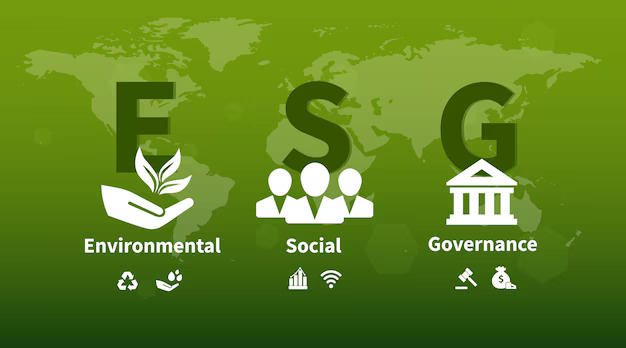
In recent years, the concept of Environmental, Social, and Governance (ESG) has gained significant traction as companies strive to build sustainable and responsible business practices. ESG is no longer just a buzzword but an integral part of corporate governance frameworks worldwide. It represents a set of standards that businesses follow to promote ethical practices, mitigate risks, and enhance long
term value.
Understanding ESG
ESG encompasses three key pillars:
1. Environmental: This dimension focuses on a company’s impact on the planet, including carbon emissions, waste management, resource efficiency, and environmental conservation.
2. Social: This involves a company’s relationships with stakeholders, community engagement, employee welfare, and human rights considerations.
3. Governance: This pillar deals with corporate governance practices, such as board composition, transparency, anti-corruption measures, and executive compensation.
Together, these pillars create a holistic approach to corporate governance, emphasizing transparency, accountability, and sustainability.
The Role of ESG in Corporate Governance
The incorporation of ESG factors into corporate governance frameworks has become a priority for companies aiming to build resilient and ethical business models. Several factors have contributed to this shift:
1. Investor Expectations: Stakeholders are increasingly demanding greater transparency and responsible practices.
2. Regulatory Compliance: Governments and regulatory bodies are introducing stricter ESG disclosure requirements.
3. Risk Mitigation: Companies with strong ESG practices are better positioned to manage financial and reputational risks.
4. Social Responsibility: The modern business landscape expects corporations to contribute positively to society.
Regulatory Developments in India
In India, the Securities and Exchange Board of India (SEBI) has made Business Responsibility and Sustainability Reporting (BRSR) mandatory for the top 1,000 listed companies by market capitalization. This reporting framework emphasizes the disclosure of ESG metrics and sustainability practices.
Challenges and the Way Forward
Despite growing awareness, implementing ESG governance poses several challenges, including data availability, lack of standardization, and resistance to change. Companies must integrate ESG principles into their core strategies to stay ahead.
Conclusion
The integration of ESG into corporate governance is no longer optional but essential for long-term success. As stakeholders demand more transparency and responsibility, companies must adopt robust ESG frameworks to foster sustainable growth and corporate integrity.
In a world where responsible business practices are becoming the norm, embracing ESG is a strategic move toward sustainable success.